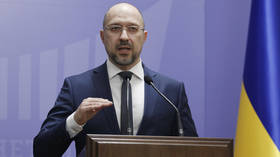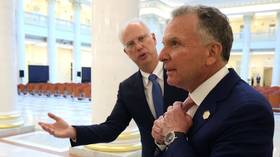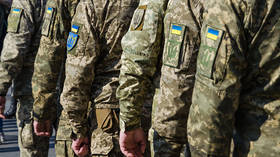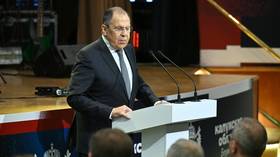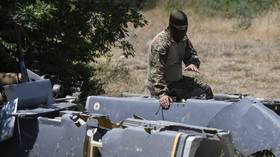‘Mix of anomalies and contradictions’: Pakistan’s ex-leader Musharraf blasts his death sentence in court petition
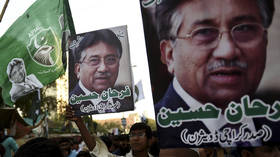
Former Pakistani President and military chief Pervez Musharraf has filed a petition against the “hurried” trial after a court tried him in absentia and sentenced him to death for high treason and undermining the constitution.
An 86-page petition, filed to Lahore High Court (LHC) on Friday by Musharraf’s legal team, states that the verdict against the former president “contained a mix of anomalies and contradictory statements,” as quoted by local media.
The document also says the court “rapidly and hurriedly wrapped up the trial which was far from conclusion,” and that Musharraf had done nothing “detrimental to national interest” during his time in power.
The former president was tried in absentia and sentenced death on December 17. He is currently receiving medical treatment in Dubai, and has been communicating via video addresses from his hospital bed. Musharraf accused the judges of having a “personal vendetta” against him and alleged that the court violated his right to properly defend himself during the trial.
Also on rt.com ‘I fought for Pakistan, I hope I get justice’: Former Pakistani president Musharraf appears on TV from Dubai hospitalThe petition also dealt with the most eyebrow-raising part of the verdict, in which judge Waqar Seth ruled that if Musharraf dies before being executed, his corpse should be hanged for three days in front of the parliament building in Pakistan’s capital, Islamabad. This particular paragraph sparked debate in Pakistan, with government officials denouncing the verdict.
Musharraf’s petition states that the ruling “crossed all religious, moral, civil and constitutional limits,” and violates “the dignity of a person.”
However, the registrar’s office returned the application due to the winter holidays, Musharraf’s lawyer told Dawn.com.He added that the application will be filed in the first week of January.
Also on rt.com Pakistani military chief says Musharraf judgement ‘transgresses humanity, religion & culture,’ prompting lawyers’ condemnationA controversial figure in Pakistan, Musharraf was general and army chief when he seized power in a bloodless coup in 1999. The treason charges against him stem from his decision to impose a state of emergency in 2007 as he sought re-election as president.
Critics accuse Musharraf of clinging to power, undermining democracy, and opening the country to CIA counter-terrorism drone operations. They also suggest Musharraf may have facilitated the assassination of his political opponent, Benazir Bhutto in 2007.
His supporters view him as a defender of Pakistani interests who stood up to Islamist militants and championed progressive causes such as women’s rights.
Think your friends would be interested? Share this story!





